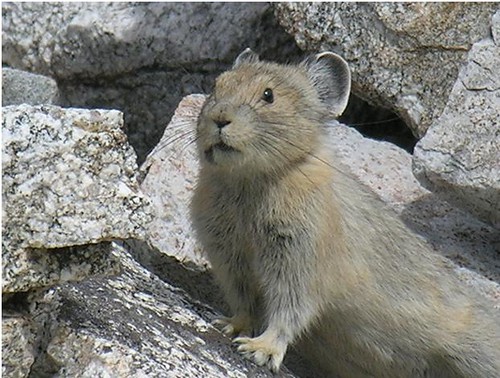
In Scanning the Conservation Horizon, a report published by the National Wildlife Federation, with support from the U.S. Forest Service and other partners, scientists describe climate change as an increasing threat to species and ecosystems.
Addressing this threat requires the right answers, which can only come from asking the right questions.
Through extensive research, U.S. Forest Service Rocky Mountain Research Station scientists have developed a 22-question measurement tool called a System for Assessing Vulnerability of Species. The tool will help land managers gauge the impact of climate change on land animals and make decisions about protecting threatened species.
Questions evaluate projected changes to animal habitats, physical functions, major life cycle events and interactions with other animal species, and their potential to cope with those changes.
Users must chose from three answers associated with each question, which will identify traits and issues related to animal vulnerabilities. One question, for example, asks, “Are specific habitat components required for breeding expected to change within the associated vegetation type?” To determine vulnerability, users of the tool must answer if the required breeding habitat components are expected to increase, decrease or be unchanged.
Assuming climate change projections are correct, users then will note whether the information available is “adequate” or “inadequate” to assign a score for each question. If the information is sufficient, an overall score will be assigned, representing the species’ relative vulnerability to climate change.
The tool focuses solely on the effects of climate change on land animals. Scores can be used to rank at-risk animal species and identify vulnerability “hot spots” within large landscapes, such as national forests.
“This tool doesn’t provide a definitive answer about the extent climate change will affect animal species,” said Deborah Finch, program manager of the Grassland, Shrubland and Desert Ecosystems Science unit of the Rocky Mountain Research Station, “but information is power, and we’re empowering land managers to start assessing vulnerabilities and making decisions about where to direct their limited resources.”
Finch, along with Megan Friggens and Karen Bagne, both Rocky Mountain Research Station researchers, developed the questions. They say that users should rely on information gathered from published materials, expert consultation and personal knowledge to complete the questionnaire.
A full report of the System for Assessing Vulnerability of Species is available at here.
